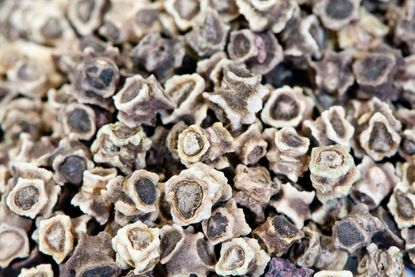Swiss Chard
Your ultimate guide to Swiss Chard: Everything you need to know with expert info for beginners and advanced gardeners alike.
-
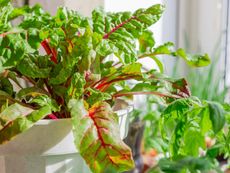
Swiss Chard Care In Pots – How To Grow Swiss Chard In Containers
Swiss chard is not only delicious and nutritious but is also ornamental. As such, planting Swiss chard in containers does double duty; it provides a showy backdrop for other plants and flowers and makes for easy picking. Click here to find out how to grow Swiss chard in containers.
By Amy Grant
-

Trouble With Swiss Chard: Common Swiss Chard Diseases And Pests
Swiss chard is generally a trouble-free veggie, but this cousin to the beet plant can sometimes fall prey to certain pests and diseases. Click here to learn about common problems with Swiss chard, and explore solutions to save the plant.
By Mary H. Dyer
-
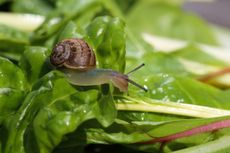
Common Swiss Chard Insects – Controlling Pests On Swiss Chard Plants
Swiss chard is enjoyed not only by people but by bugs that attack the plant foliage. If you're desperate to save your Swiss chard, click the following article to find out about common Swiss chard insects and controlling pests on Swiss chard.
By Amy Grant
-

Why Did My Chard Bolt: What To Do With Bolted Chard Plants
Chard is a great addition to any vegetable garden. Not only is it pretty, but the leaves are tasty, versatile, and very good for you. Grown in the cooler seasons, chard typically won't bolt in summer. If you do have bolting chard plants, all is not lost. Learn more here.
By Mary Ellen Ellis
-
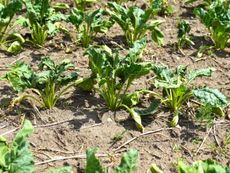
Sick Swiss Chard Plants: Identifying Signs Of Swiss Chard Disease
Swiss chard diseases are not numerous, but just one of them can wipe out your crop for the year. But, if you know about these diseases and pests, you can take steps to prevent or treat them and save your harvest. Learn more in this article.
By Mary Ellen Ellis
-

Cold Hardy Swiss Chard – Can Swiss Chard Grow In Winter
Swiss chard not only grows well in the hot temperatures of summer, but it also tolerates frost. In fact, chard may actually taste better when it?s grown in cold weather. Click this article for information on caring for Swiss chard in winter.
By Ilana Goldowitz Jimenez
-

Swiss Chard Fall Planting: When To Plant Chard In Autumn
Growing Swiss chard in autumn allows you to get a final harvest since it is a cool season plant. In order to successfully get a harvest before the freezing weather comes, you have to know when to plant chard in autumn. This article will help with that.
By Bonnie L. Grant
-
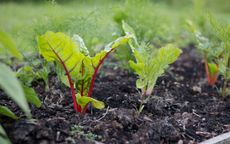
Swiss Chard Spring Planting: When To Plant Chard In Spring
Swiss chard can be planted early in spring or midsummer. Chard in summer can bolt and get bitter, though, so Swiss chard spring planting is one of the better times to sow and harvest this healthy, delicious plant. Learn more about spring planting chard here.
By Bonnie L. Grant
-

Swiss Chard Care – How To Grow Swiss Chard In Your Garden
If you’re a person who values your leafy greens, you may want to grow a crop of colorful Swiss chard. For people on a vegan or keto eating plan, it is the perfect companion to spinach and kale. It’s easy to grow, so click here to learn about Swiss chard care in your garden.
By Caroline Bloomfield
-

Harvesting Chard: How And When To Harvest Swiss Chard Plants
To get the most from your Swiss chard harvest, it is a good idea to become familiar with how and when to harvest Swiss chard from the garden. Read this article to find tips for doing just that.
By Susan Patterson
-

Types Of Swiss Chard: Tips For Choosing The Best Swiss Chard Variety
Chard plants come in many varieties and colors. The brightly colored ribs of the celery-like stems belong to the well-known Swiss chard plant family. Learn about the different varieties of chard plants in this article.
By Bonnie L. Grant
-
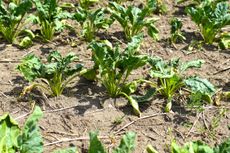
Wilting Swiss Chard Plants: Why Is My Swiss Chard Wilting
Swiss chard is a great garden plant that's easy to grow and get a lot of success from, but like anything, it's not a guarantee. Sometimes you hit a snag, like wilting. Wilting is actually a really common problem, but it only has a few causes. Learn more here.
By Kristi Waterworth
